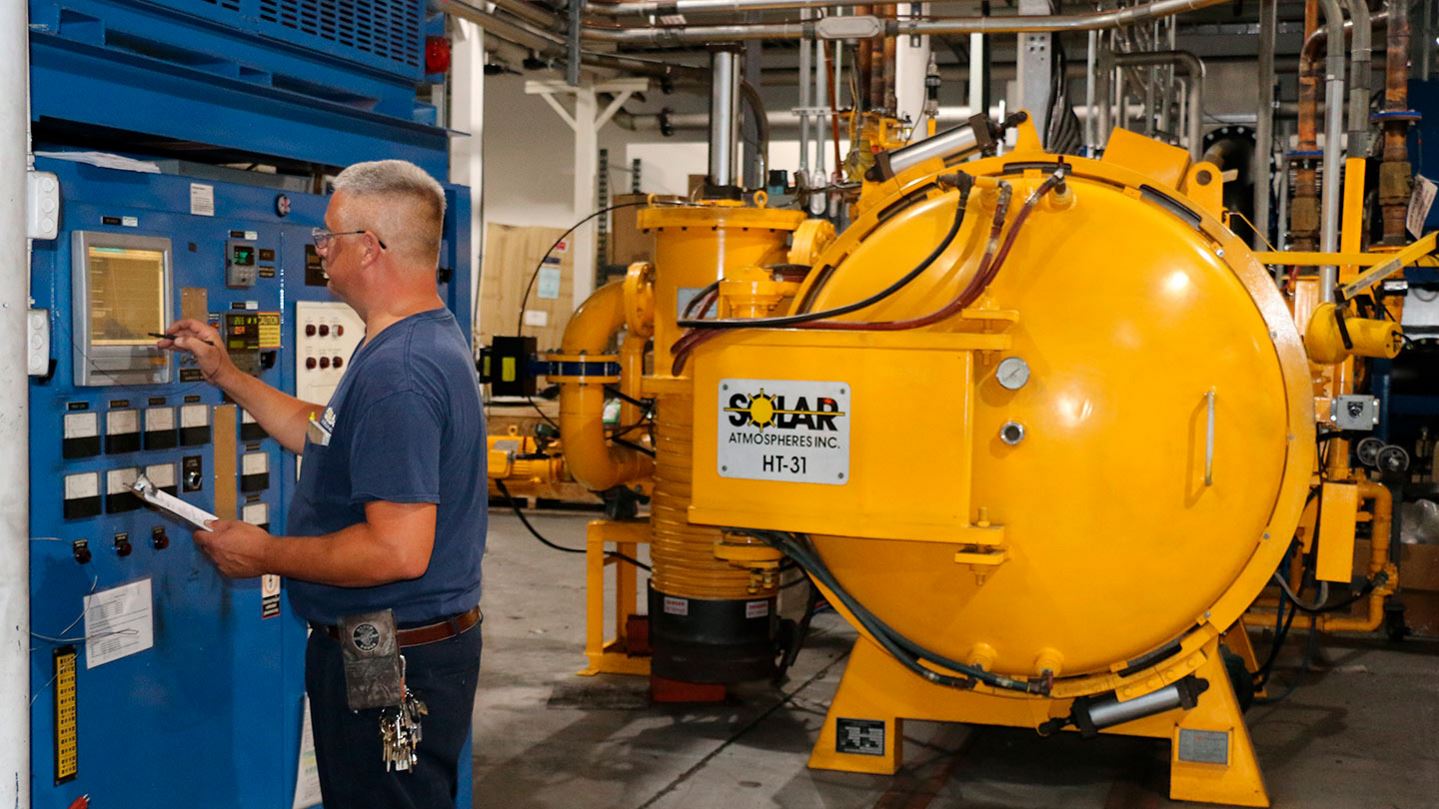
Industrial Gases from a Global Leader
- Global leading manufacturer of nitrogen, oxygen, and argon
- World leading producer and supplier of helium and hydrogen
- Reliable supply of industrial gases
- Excellent record of meeting on-time needs
- Industry leader in safety
- Technical support when you need it
- World-class customer service
Get in touch with our technical experts.
Contact us to put decades of experience with industrial gases, production, application and equipment to work for you.
Ask The Expert

Mark Lanham
Applications Engineer, North America
“Gas Quenching With Air Products’ Rapid Gas Quenching Gas Mixture”
Safety and environmental considerations make gas quenching an attractive alternative to liquid quenching. The advantages of gas quenching include cleaner product, minimum distortion, and elimination of environmental problems associated with gas quenching. However, gas quenching has not been widely used because of limited cooling rate. Air Products’ RGQ gas mixture increases the gas cooling rate over 100% helium at a given gas pressure and velocity.

GAS QUENCHING WITH AIR PRODUCTS’ RAPID GAS QUENCHING GAS MIXTURE
Safety and environmental considerations make gas quenching an attractive alternative to liquid quenching. The advantages of gas quenching include cleaner product, minimum distortion, and elimination of environmental problems associated with gas quenching. However, gas quenching has not been widely used because of limited cooling rate. Air Products’ RGQ gas mixture increases the gas cooling rate over 100% helium at a given gas pressure and velocity.

Each Quenching Solution is Customized to Your Needs
We can help you choose the right quenching option:
- Select and provide proper pressure and flow control equipment
- Perform on-site atmosphere analyses
- Optimize your furnace process to lower operating costs
- Perform state-of-the-art metallographic and chemical analyses (SEM, ESCA, SAM, ISS, SIMS)
- Provide safety training
- Test parts in our lab furnaces
- Demonstrate our system at your facility

Industrial Gas Audits and Leak Detection Services
Audits and leak detection services can be comprehensive assessments of the entire gas supply system, or specific to gas or process equipment that use the gas.
Additional Services Gases
Air Products gases, typically provided in gaseous and liquid form, enable customers in a wide range of industries to improve their environmental performance, product quality, and productivity.
Argon
Compressed argon gas and liquid argon in a variety of purities and in various modes of supply around the world thanks to our network of storage and transfill facilities.
Helium
An inert gas for cryogenic, heat transfer, shielding, leak detection, analytical and lifting applications
Nitrogen
Useful as a gas, for its inert properties, and as a liquid for cooling and freezing. Virtually any industry can benefit from its unique properties to improve yields, optimize performance and make operations safer.
